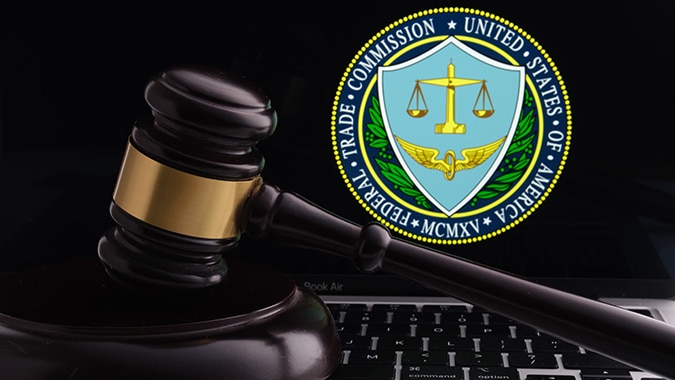A new Federal Trade Commission (FTC) rule, which prohibits companies from enforcing most non-compete agreements signed by their employees, now faces a legal challenge from businesses that contend the agency has overstepped its legal authority.
The FTC final rule, announced Tuesday, would impact an estimated 30 million workers who have signed non-compete agreements that ban them from working for one of their employer’s competitors or from starting their own rival business. A lawsuit challenging the rule was filed Wednesday in the U.S. District Court in East Texas by the U.S. Chamber of Commerce and other business groups. A separate lawsuit was filed in Dallas by the global tax services and software provider Ryan LLC.
If the rule is allowed to take effect in four months, non-compete agreements for all workers would be abolished except for ones that already exist for a company’s most senior executives, who are defined as employees in policymaking roles earning more than $151,164 a year. Although previously signed non-competes for senior executives remain enforceable, they are prohibited for senior executives hired after the FTC rule takes effect.
The FTC said that businesses can still utilize alternatives to non-competes to protect their investments and sensitive proprietary information. These alternatives include trade secret laws and non-disclosure agreements (NDAs).
The U.S. Chamber of Commerce said the new FTC rule on non-competes was a “blatant power grab that will undermine American businesses’ ability to remain competitive.”
“This decision sets a dangerous precedent for government micromanagement of business and can harm employers, workers, and our economy,” Suzanne Clark, the president and CEO of the U.S. Chamber of Commerce said in press statement.
The FTC said that non-compete agreements force workers to either stay in a job they want to leave or bear other significant harms and costs, such as being forced to switch to a lower-paying occupation, being forced to relocate, being forced to leave the workforce altogether, or being forced to defend against expensive litigation.
“Noncompete clauses keep wages low, suppress new ideas, and rob the American economy of dynamism, including from the more than 8,500 new startups that would be created a year once non-competes are banned,” FTC Chair Lina M. Khan said Tuesday in a press statement. “The FTC’s final rule to ban non-competes will ensure Americans have the freedom to pursue a new job, start a new business, or bring a new idea to market.”
NJBIA Vice President of Government Affairs Elissa Frank said non-compete agreements are not appropriate for workers paid less than $70,000 a year. However, for highly paid employees these contracts can be mutually beneficial. A company’s senior executives are typically offered higher salaries than they otherwise would be because they are signing a non-compete agreement. Employers benefit from lower turnover among key personnel.
The FTC’s new rule only applies to the industries whose business practices are regulated by the commission. Therefore, the rule would not apply to employees who work for banks, insurance companies, airlines, and nonprofit organizations.
The rule is set to take effect 120 days after it is published in the Federal Register. However, legal challenges could further delay the rule’s implementation if a federal court hearing the case issues an injunction until the validity of the rule is decided.




